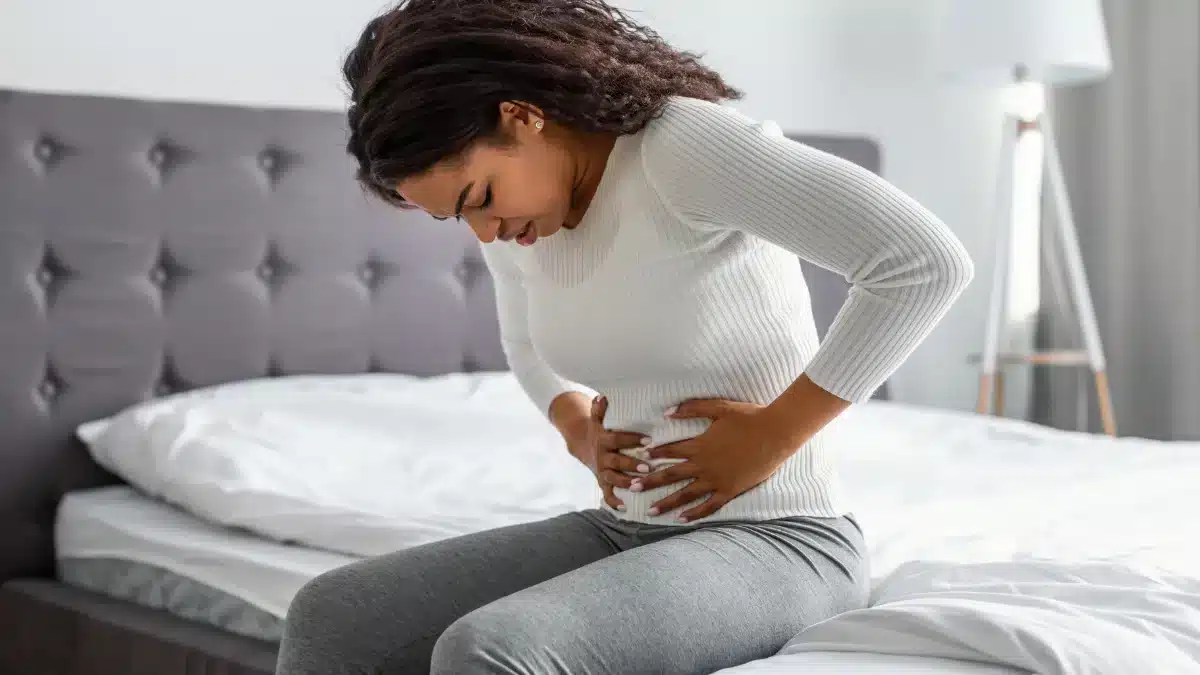Bowel Endometriosis: Symptoms, Causes, and Managing Tips
Endometriosis is a common gynecological condition that can be found in the fallopian tubes, ovaries, and other pelvic regions. It affects 10-12% of women of reproductive age.
When this condition extends to the bowel, it is called bowel Endometriosis and causes significant discomfort.
With advancements in medical understanding and treatment options, women can manage their symptoms effectively.
Taking medical help and collaborating with doctors are crucial steps toward effectively addressing this condition.
In this article, we will take a closer look at what bowel Endometriosis feels like and provide some managing tips to alleviate the discomfort.
What is bowel Endometriosis
Bowel Endometriosis primarily affects the lower gastrointestinal tract.
It usually appears as a single lump, larger than 1 cm, often affecting the muscle layer of the bowel and nearby tissues.
This occurs in about 5% to 12% of women with Endometriosis, with the rectum and sigmoid colon being involved in about 90% of these cases.
The sigmoid colon refers to the S-shaped part of the large intestine.
Bowel Endometriosis symptoms

The symptoms of this Endometriosis can vary, making it a complex condition to diagnose.
Common symptoms may include the following:
- Difficulty with pooping (constipation or Diarrhea)
- Pain with bowel movements
- Abdominal bloating
- Discomfort during periods
- Painful sex
- Pelvic pain
What causes Bowel Endometriosis
Doctors aren’t exactly sure why Bowel Endometriosis or any of this condition occurs.
One theory believes Retrograde menstruation is a potential cause.
This happens when period blood flows backward through the fallopian tubes into the pelvis instead of out of the body.
Consequently, these cells implant in the intestines.
Sometimes, Endometriosis seems to run in families. So, genetics could play a role too.
There could also be other causes, so it’s essential to consult your doctor for proper diagnosis and treatment.
How to diagnose bowel Endometriosis
Diagnosing this condition typically involves a combination of physical examination and diagnostic tests.
Your doctor will ask about your symptoms, menstrual history, and any relevant medical conditions.
Ultrasound, MRI, or CT scans may be used to visualize the pelvic organs and detect any abnormalities, such as lesions or adhesions.
A laparoscopic procedure is necessary for a definitive diagnosis.
It is known as the gold standard for diagnosing Endometriosis.
Treating bowel Endometriosis
Treating bowel Endometriosis is aimed at managing symptoms and addressing the underlying condition.
Here are the following treatment options:
Medications
In cases of bowel symptoms like constipation, medications such as laxatives may be recommended to manage bowel function.
To alleviate the pain and discomfort linked to the condition, painkillers like Brufen 400mg (Ibuprofen) and Naprosyn 500 + (Naproxen) may be prescribed.
Hormonal medicines, like birth control pills or GnRH agonists, may be used to reduce the growth of endometrial tissue in the bowel.

Struggling with Endometriosis hold over your daily life?
Seek solace and relief with specialized aids from WowRxPharmacy.
Regestrone 5mgDanogen 100mgSurgical procedures
Laparoscopic surgery is often the preferred approach for treating bowel Endometriosis.
During this procedure, lesions, adhesions, and scar tissue in the bowel are carefully removed.
In severe cases where Endometriosis has infiltrated deeply into the bowel wall, bowel resection surgery may be necessary.
Adopting a healthy diet

A balanced diet, abundant in fiber and nutrients, can help alleviate the discomforting symptoms of bowel Endometriosis.
Consider eating anti-inflammatory foods like fish, leafy greens, and berries.
Limit processed foods, refined sugars, and caffeine. This will help alleviate the discomforting symptoms of bowel Endometriosis.
To learn more about diet to alleviate Endometriosis conditions, you can also read our guide to Endometriosis diet.
Conclusion
Bowel Endometriosis involves the infiltration of Endometrial tissue into the bowel.
It can lead to symptoms like difficulty with bowel movements and pelvic pain.
While the exact cause is unclear, genetic factors, inflammation, and Estrogen levels are believed to play a role.
Diagnosing this condition requires a thorough medical evaluation, including imaging tests and possibly laparoscopy.
Treatment options include medicines to manage symptoms and surgical procedures like laparoscopy or bowel resection.
Early diagnosis and timely treatment are crucial for effective management of this problem.
Frequently Asked Questions
What are the symptoms of bowel Endometriosis?
Symptoms of bowel Endometriosis include difficulty with bowel movements, pelvic pain, discomfort during periods, painful intercourse, and infertility. These symptoms may differ in severity and can impact daily life. Prompt medical evaluation is necessary for accurate diagnosis and appropriate management.
What happens if bowel Endometriosis is left untreated?
If left untreated, bowel Endometriosis can lead to worsening symptoms, increased pain and discomfort, and complications such as bowel obstruction or infertility. Early diagnosis and timely treatment are vital for preventing severe consequences.
How to treat bowel Endometriosis?
Treatment options for bowel Endometriosis include medications and hormonal therapy to manage symptoms and suppress Endometrial tissue growth. Surgical procedures, such as laparoscopy or bowel resection, may be performed in severe cases.
What can cause bowel Endometriosis?
The exact causes of bowel Endometriosis are not fully understood. Further research needs to be done to find the exact cause. Genetic predisposition, inflammation, and hormonal influences, particularly Estrogen levels, may contribute to its development.
WowRx uses only high-quality sources while writing our articles. Please read our content information policy to know more about how we keep our content reliable and trustworthy.






